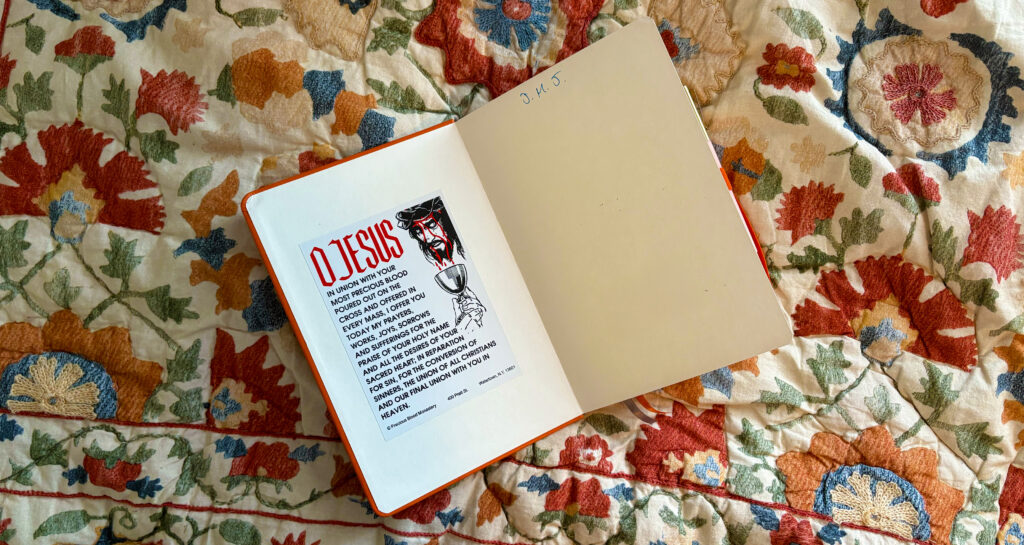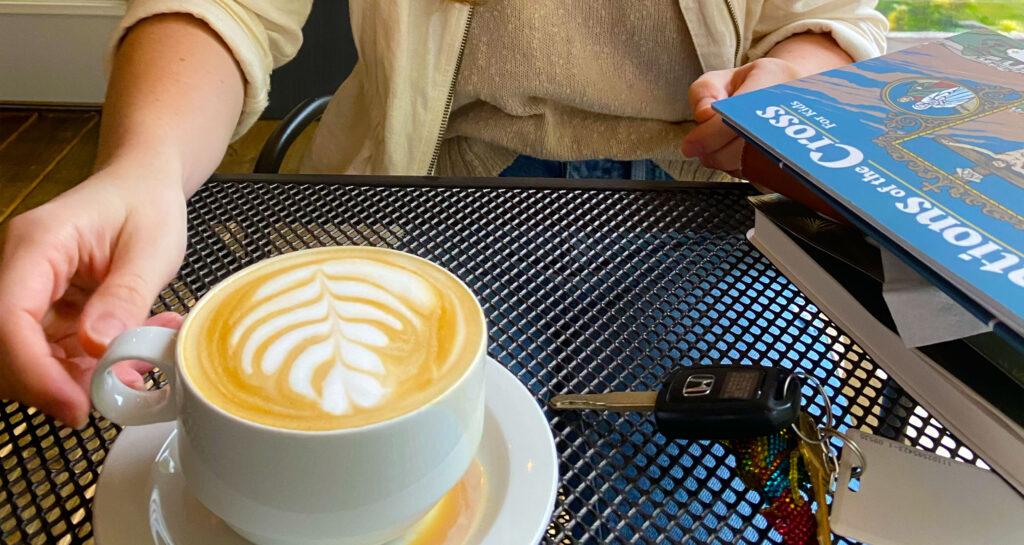Coping in grief and loss: Back to the basics
Published on March 26, 2025

Experiencing the death of a loved one is life-altering, to say the least. In the days, weeks, and months following that loss, we need to relearn how to live on the most basic levels.
I needed somebody to tell me how to live again after my fiancé died because I could hardly tell up from down. My spiritual director gave me a checklist: prayer, food, water, sleep, activity, and friendship.
If you are facing radical grief, I encourage you to intentionally care for your mind, body, and soul so that you can better cope with the loss. This is important for your health and enables you to show up for responsibilities like work and family. Some days, the plan is easy to follow; other days, you might have to force yourself out of sheer willpower.
The following steps helped me to cope with grief and loss.

Make a morning offering daily
This first step is foundational. Offer your life to the Lord this morning and every morning. Show Him your willingness to receive the new life that He is waiting to pour into you. Be resolved: “I choose to live and I give my life to You.”
“I choose to live and I give my life to You.”
If we are not ready to carry our cross alongside Christ, then we will not be disposed to receive the grace we desperately need to shoulder our new burden. It would be like pouring water onto concrete – the water cannot be absorbed, and nothing can grow.
Instead we need to become “good soil,” where new life can take root and grow.
Here’s my morning offering:
O Jesus, in union with Your Most Precious Blood poured out on the cross and offered in every Mass. I offer you today my prayers, works, joys, sorrows and sufferings. For the praise of Your Holy Name and all the desires of Your Sacred Heart. For reparation of sins, the conversion of all sinners, the union of all Christians, and our final union with You in Heaven. Amen.

Go to the nearest Catholic church
Getting out of the house, or even out of bed, can seem impossible. But I want to challenge you to brush your hair, put on nice clothes, and drive to the nearest Catholic church.
You need to spend time with our Lord every day (yes, every day). God is truly the Divine Healer – this practice of Eucharistic adoration was medicine to my bleeding heart.
St. Claude La Colombière explains it better than I ever could:
“…if some great misfortune should actually happen, instead of wasting time in complaint or self-pity, go throw yourself at once at the feet of your Saviour and implore His grace to bear your trial with fortitude and patience…go to God, but go at once, go there and then. Let this be your first thought. Go and report to Him what He has done to you. Kiss the hands of God crucified for you, the hands that have struck you and caused you to suffer. Repeat over and over again to Him His own words to His Father while He was suffering: Not my will but thine be done.” (Trustful Surrender to Divine Providence: The Secret of Peace and Happiness by St. Claude La Colombière, Fr. Jean Baptiste Saint-Jure)

Drink lots of water
Under normal circumstances, most of us are dehydrated and over-caffeinated, so we can all use a good reminder. In grief, it can be easy to forget about drinking water, but you need to make it a priority. Staying well-hydrated will help your brain and body process grief.
Here’s what worked for me: I filled my ridiculously large 64oz water bottle with water in the morning. My goal was to drink at least one every day. As long as it was filled and sitting next to me, I would drink all of it.

Eat three meals
Some people struggle with overeating, while others fall into under-eating. Whichever group you’re in, eating is hard after you lose a loved one. I want to encourage both groups to strike a balance (therein lies virtue) between eating too much or too little.
Eat three reasonable meals every day. Give your body the healthy foods it needs to carry you through this deeply painful time of life.
If you are struggling in this area, consider talking to your parish priest, spiritual director, or a faithful therapist to help you find a good balance.

Get regular sleep (this one is hard)
Double down on everything you’ve been taught about sleep but have never implemented. Sleep can be nearly impossible to come by when you’re knee-deep in grief, so do everything in your power to get as much sleep as possible. We need to be well-rested to tackle tomorrow.
Here are a couple of tips to get better sleep:
- What you drink and eat (the two previous steps) impacts how you sleep
- Swap screentime for prayer and meditation an hour before your bedtime
- Stick to the same bedtime and waketime every day, even on weekends
- Here are more tips

Move your body
The goal of this step is to get you off the couch and out of your head. When we’re stuck inside all day, it’s easy to forget that there is so much life right outside the front door. A walk around the block can turn the mind outward. You don’t have to do any intense workouts unless that’s helpful for you.
I found these activities to be helpful:
- Walk around a block or two
- Drive to a nature trail for a hike
- Do five minutes of stretching
- Shop for groceries
- Clean the house
- Park far away in the lot

Reach out to a friend
Make sure that you interact with another human every day because we often get lost in isolation. Give somebody a call, invite a friend over for a walk, ask to eat dinner at that family’s house who offered, or go grocery shopping with your sister.
This one was painful for me because I didn’t want to be the one to take the initiative with friends – after all, I’m the grieving one, right? But our family and friends might not know the best ways to show up for us during this time. It could be up to you to reach out.

Conclusion
You will learn how to live this new life carrying your heavy cross. Be gentle with yourself and patient with God. Remember that you are keeping good company with Christ at the foot of His cross next to our Blessed Mother.
“It’s no good for us, then, to do what the world is telling us all the time, which is to take every precaution and go to any length to avoid the cross… We can’t avoid the cross… You’ll know you’re on the right cross [when] you look down and you see Mary standing there at the foot.” (Msgr. James Shea)




Sarah, this article is just lovely! Thank you so much for sharing your strategies for healing after your loss.